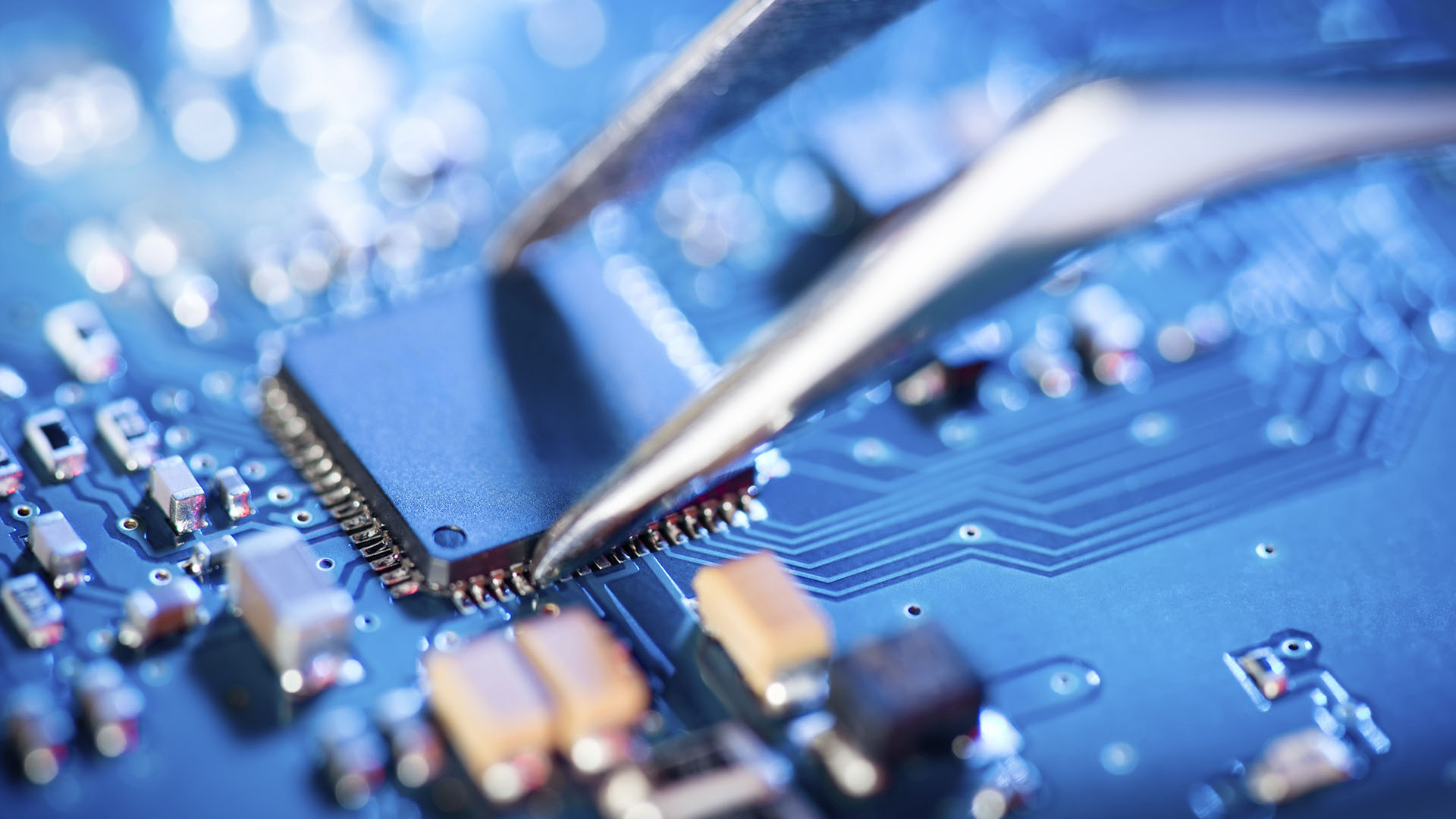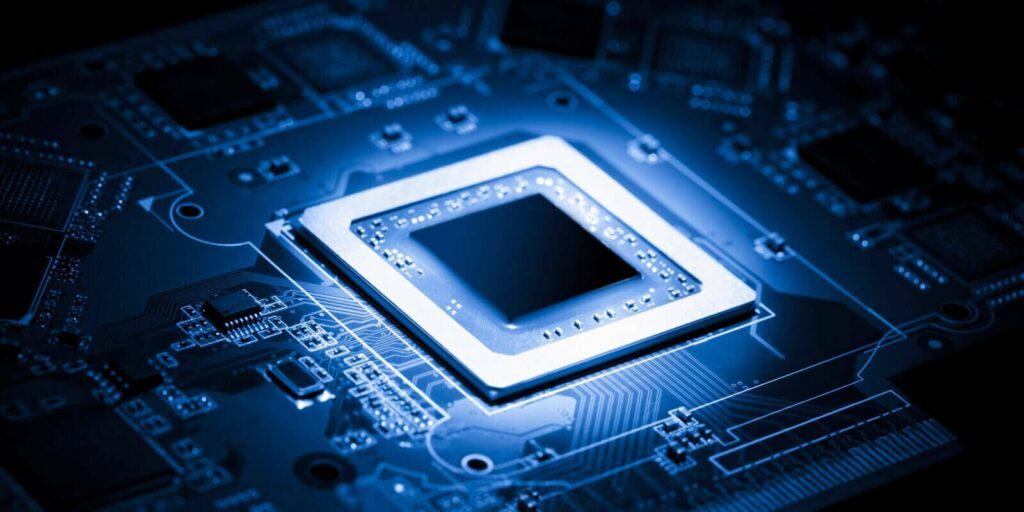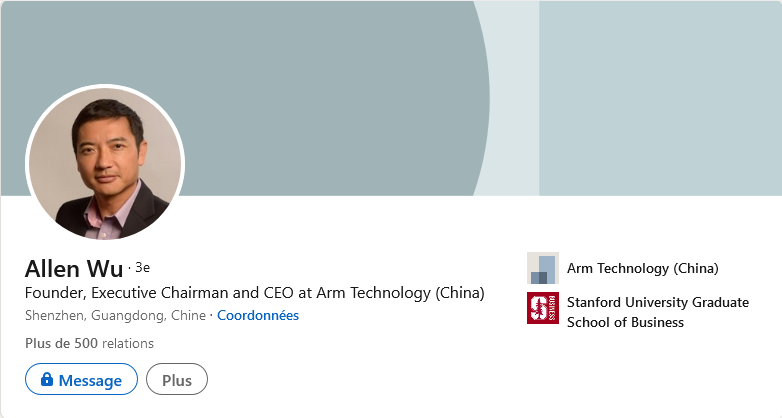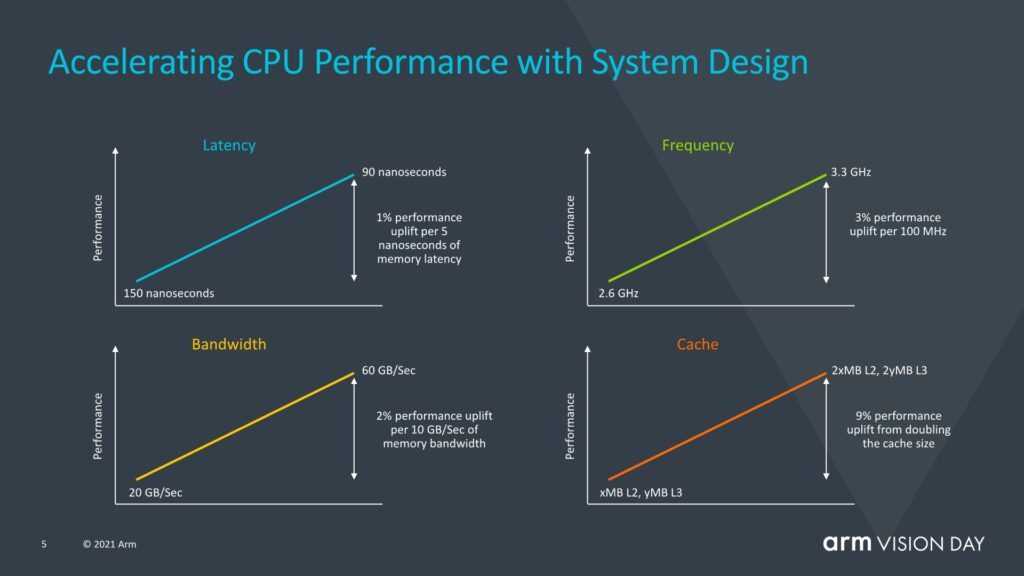
In the semiconductor world, a deal is described as “the heist of the century”. The British company ARM, which developed in China, is the victim of a dispute over the ownership of its subsidiary, ARM China. His boss, who proves to be unstoppable, is accused of seceding and taking his independence, by stealing the technologies made available under license by the parent company.
One annoyance can hide another, clearly more serious. While the plan to buy ARM by Nvidia, which was announced in October 2020, agitates several regulatory authorities around the world, signals from China are giving management a cold sweat. Indeed, it is reported that its Chinese subsidiary, ARM China, is in the process of cutting ties with its parent company.
In a publication published on August 27, the Semi Analysis site is categorical, describing the affair as ” semiconductor theft of the century “The site adds:” ARM China has become completely rebellious, operating as an independent company with internal intellectual property and research and development “. In short, a new structure would have been put in place, without any link with ARM.
How did we come to this situation?
Loss of control of the subsidiary in China
The starting point of this whole affair can undoubtedly be placed in the year 2016. It is on this date that this British company becomes the property of the Japanese holding company Softbank, for the sum of 32 billion dollars. At that time, the Chinese market appears to be strategic and unavoidable. But to access it, you still have to come to terms with China’s rules of the game.
In 2018, it was announced that the joint venture bringing together ARM on one side of Chinese investors on the other was mostly under the control of the second, since ARM must sell 51% of ARM China. The deal was made for 775 million dollars and, at that time, Softbank publicly welcomed this deal, which must ” expand ARM opportunities in the Chinese market “.
” ARM believes the joint venture, which will license ARM’s semiconductor technology to Chinese companies and locally develop ARM’s technology in China », Continued the press release. In exchange, ARM was to recover ” a significant proportion of all income From the business of its industrial property by ARM China.

ARM’s specialty is designing processor architectures, which are at the heart of devices, from smartphones to servers, including computers, tablets, televisions or even supercomputers. Big names in tech are or have been clients of ARM, such as Apple, Intel, Nvidia, Samsung, Qualcomm and Microsoft. ARM can license the production of the chips to others.
One of ARM’s strengths is to have been able to invent components whose power consumption is contained and lower than competing solutions. In fact, ARM’s know-how is necessarily very interesting in a world where we are witnessing an explosion of portable devices of all kinds, a trend that continues with connected objects and accessories, such as high-tech watches. tech.
The indestructible boss of ARM China
It is in 2020 that things take a turn for the worse or, at least, that worries come to light. In the summer, the Financial Times reported a dispute between the management of ARM and the owners of ARM China. The British wanted to replace ARM China boss Allen Wu because he is criticized for using his privileged position to push companies to invest in his own small business.
To summarize in broad outline, Allen Wu is accused of creating deals without any hierarchical approval. He allegedly offered some ARM China customers discounts on the cost of ARM licenses in exchange for an investment in his personal fund, which is called Alphatecture. As a result of these maneuvers, the British parent company certainly tried to remove him from his post, but without success.
He reported that ARM China’s board of directors voted by a strong majority (seven to one) to remove Allen Wu after he was accused of conflict of interest. But, according to the Financial Times, in an article from November 2020, the person continues to be in charge of daily operations. In addition, thanks to a financial transaction, he was said to be in a position to thwart the acquisition of ARM by Nvidia.

According to information from the American newspaper, Allen Wu controls nearly 17% and four of the six shareholders of ARM China. In the activities of ARM, its Chinese subsidiary weighs very heavily: it is responsible for a fifth of total ARM sales according to SoftBank. ARM solutions are widely used in tech and are even largely in the majority in certain product segments.
The conflict then took on a new dimension. It has been reported that in the offices of ARM China, according to reports from the Business Daily, Allen Wu has set up his own security team to deny entry to representatives of ARM or ARM’s board of directors. China. In addition, emails sent by ARM headquarters to employees are blocked by a filtering system.
The file also went to court. In April 2021, three people who had been appointed by the ARM China board to replace Allen Wu were fired by ARM China. The three individuals were put back in place by this body, in response, before complaints were filed against them by ARM China. Reason? They would have been the source of serious breaches.
ARM limits transfers to ARM China
Given this situation, ARM did not stand idly by. Internally, it was decided to stop sending new technologies to ARM China, notes Semi Analysis. The most recent chip that the subsidiary owns is the Cortex A77, launched in 2019. The other transfers (CPU, GPU, neural network acceleration chips) are interrupted, including on the server side, like the Neoverse N1.
In particular, the Armv9 instruction set, which is the one that will punctuate the development of ARM for the years to come, has not crossed the Chinese border either, indicate our colleagues. Armv9 promises spectacular developments for the coming decade. Armv8 was released in 2011. Armv9 is expected when it comes to security, digital signal processing, and machine learning.

In addition, ARM has tried to make high-level contacts with the authorities, pointing out that Allen Wu’s actions are harming the Chinese semiconductor industry and questioning the risks to foreign investment if such maneuvers. occur without either the regulators or the power in place coming to whistle the end of recess.
Beijing is probably aware of what is going on with ARM China. Especially since, among the shareholders of this subsidiary are entities which are supported by the central power. Obviously, the authorities prefer to remain discreet and at a distance, at least officially, despite the involvement of public funds. The country is certainly following this file all the more as the country has a proven dependence on semiconductors.
The opinion of the Chinese regulator on the acquisition of ARM by Nvidia, an American company, is eagerly awaited, because if ARM passes under American fold, the company would be obliged to follow sanctions coming from Washington and, therefore, to pass them on. on ARM China. At least, this scenario is plausible if ARM China remains in ARM’s purse. Recent developments, however, have just reshuffled the cards.


